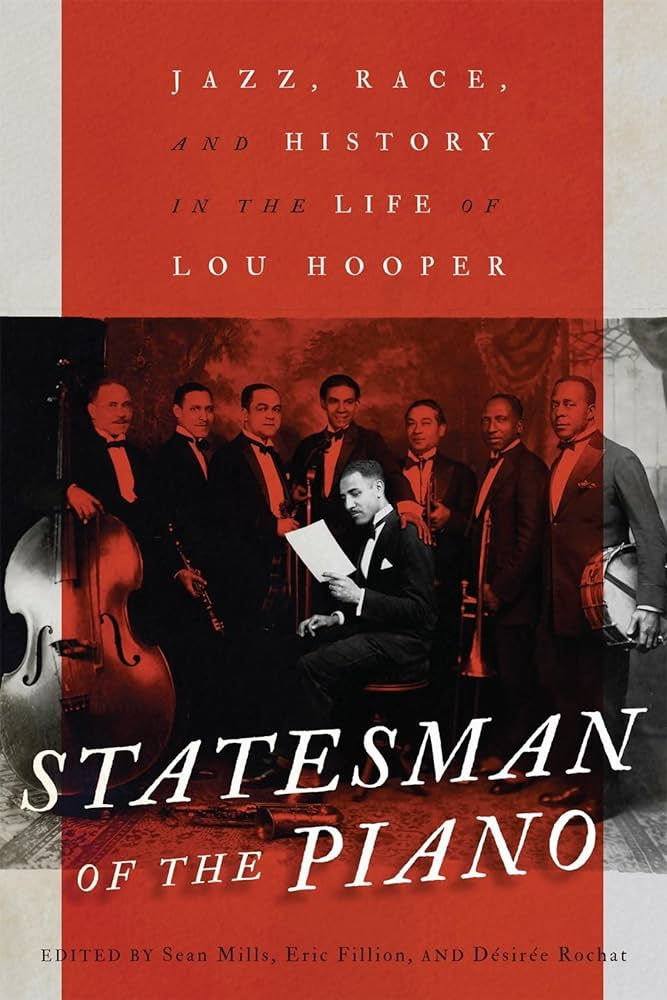Statesman of the Piano - Jazz, Race, and History in the Life of Lou Hooper Edited by Sean Mills, Eric Fillion and Désirée Rochat McGill-Queen’s University Press (2023)
- Félix Lambert

- Mar 15, 2024
- 3 min read
Reviewed by Félix Lambert
Author of Watch your Step - A History of African American Dancing

I remember when I first discovered the Lou Hopper Archives in Ottawa, you needed to go there in person to view them or order copies of the manuscripts. It was worth it, though, just to see the photographs with my own eyes. We can be grateful that Sean Mills, Eric Fillion and Désirée Rochat have made Lou Hooper’s autobiography available in a few clicks or a visit to your favorite bookstore.
For the record, Mills’ previous publications targeted more immigration-related and political topics, like his A Place in the Sun: Haiti, Haitian, and the Remaking of Quebec. Fillion’s previous titles looked at one of my favorite composers, Heitor Villa-Lobos, while his Jazz Libre et la révolution quécoise: musique-action, 1966-1975 is of high cultural value, and, finally, Rochat signs here her first monograph editorial contribution.
Louis Stanley Hooper was a Canadian African-American pianist, band leader and composer. Statesman of the Piano: Jazz, Race, and History in the Life of Lou Hooper contains his integral memoir extended by a useful notes and comments section, and a few interesting articles about music and Black archives.
To understand the value of this work, we can place Hooper between two opposite styles of pianists’ biographies covering partly the same decades. On one hand, there’s Duke Ellington’s Music is My Mistress which offers a polite portrait of the time and defines the musician as mostly refined from a ‘high culture’ perspective. On the other end of the spectrum, we have Jelly Roll Morton’s biography, in which ‘low class characters, dirty language and wild stories,’ probably sometimes invented, paint a totally different portrait of jazz life, which will also be the subject of an excellent upcoming book by Elijah Wald, Jelly Roll Blues: Censored Songs and Hidden Histories.

Hooper clearly positioned himself closer to Ellington, describing himself as a well-educated and hard-working musician, sometimes even struggling to define himself as a jazz pianist. His story leads us to Detroit, where we meet many of the important musicians present in the first chapters of Lars Bjorn’s well-researched Before Motown: A History of Jazz in Detroit, 1920-1960, who work in and around New York during the same years as Ellington’s blossoming career, before his move to Montreal after some traveling back and forth across the border. There, we see Hooper in a show featuring a very young Billie Holiday, a section that serves as a good complement to John Gilmore’s landmark’s book Jazz in Montreal, or Mark Miller’s general contribution to jazz in Canada. An important part of his biography leads us to his contribution as a musician in the army during WWII.
With Hooper, we follow his path into the recording studios, sometimes with some of the best blues recording artists of the time, at other times with his dance orchestra, the Blackbirds show, and at still other times with the army in Europe as previously noted. The book provides an excellent overall view of his career from the point of view of a modest soul, eager to share his memories as honestly as possible. The biography is very refreshing, offering a glimpse into the music and culture of the time from a musician who was never considered a main star, but rather a regular professional musician of the time.
Alongside the previous books mentioned, Statesman at the Piano seems a necessary




Comments